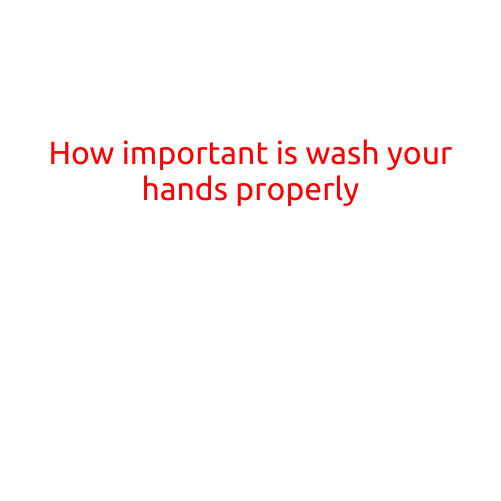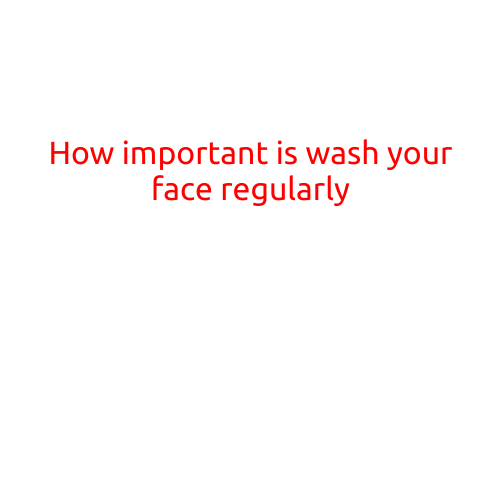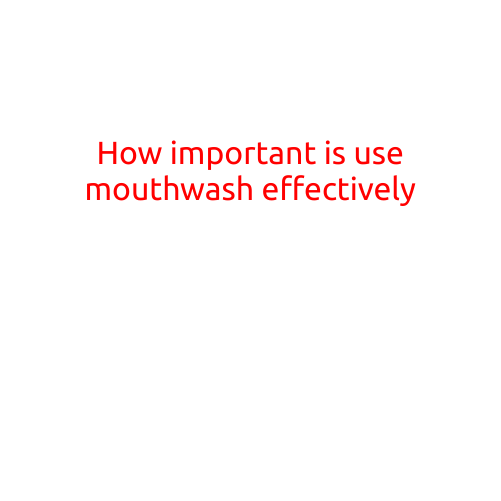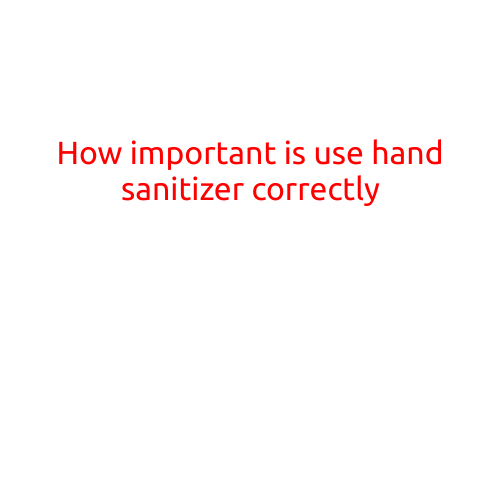
How Important is Washing Your Hands Properly?
Washing your hands is one of the simplest and most effective ways to prevent the spread of illnesses and infections. Yet, despite its importance, many of us do not wash our hands properly or frequently enough. In this article, we will explore the significance of washing your hands properly and provide you with tips on how to do it correctly.
The Importance of Hand Hygiene
Hand hygiene is crucial in preventing the spread of illnesses and infections. When you touch surfaces or objects contaminated with germs, such as viruses, bacteria, or fungi, you inadvertently bring those germs onto your hands. If you do not wash your hands properly, those germs can easily spread to your eyes, nose, mouth, and other parts of your body, causing infections and illnesses.
Preventing the Spread of Diseases
Washing your hands properly can help prevent the spread of numerous diseases, including:
- Influenza (the flu): Washing your hands regularly can help prevent the spread of the flu virus.
- Norovirus: Norovirus is a highly contagious virus that causes stomach flu. Washing your hands frequently, especially after using the bathroom and before handling food, can help prevent its spread.
- Common Cold: Washing your hands regularly can help prevent the spread of the common cold virus.
- MRSA (Methicillin-resistant Staphylococcus aureus): MRSA is a type of infection caused by bacteria that can spread through direct contact with an infected person’s skin or contaminated objects.
- Foodborne Illnesses: Washing your hands before handling food can help prevent the spread of foodborne illnesses, such as Salmonella, E. coli, and Listeria.
How to Wash Your Hands Properly
Washing your hands properly is a simple process, but it requires attention to detail. Follow these steps to wash your hands correctly:
- Wet your hands: Wash your hands under warm running water.
- Apply soap: Use a mild soap that is gentle on your skin.
- Rub: Rub your hands together to create a lather.
- Pay attention to high-touch areas: Pay special attention to high-touch areas such as the backs of your hands, between your fingers, and under your nails.
- Wash for at least 20 seconds: Wash your hands for at least 20 seconds to ensure that you remove all germs.
- Rinse: Rinse your hands thoroughly under running water.
- Dry: Dry your hands completely with a clean towel or air dryer.
Additional Tips
In addition to washing your hands properly, here are some additional tips to help you stay healthy:
- Wash your hands frequently: Wash your hands frequently, especially after using the bathroom, before handling food, and after blowing your nose, coughing or sneezing.
- Use hand sanitizer: If soap and water are not available, use hand sanitizer that contains at least 60% alcohol.
- Avoid touching your face: Avoid touching your eyes, nose, and mouth as much as possible to prevent germs from spreading.
- Keep your environment clean: Keep your environment clean by regularly cleaning and disinfecting surfaces, objects, and equipment.
Conclusion
Washing your hands properly is a simple yet effective way to prevent the spread of illnesses and infections. By following the steps outlined in this article, you can ensure that you wash your hands correctly and stay healthy. Remember to wash your hands frequently, use hand sanitizer when soap and water are not available, and avoid touching your face to prevent the spread of germs.





